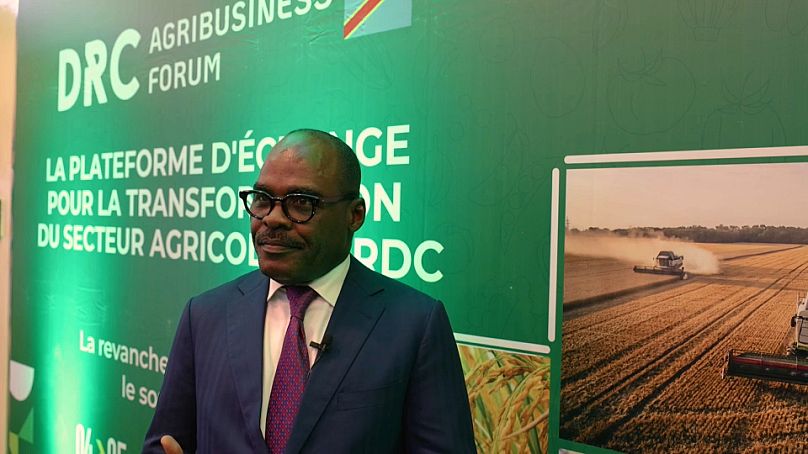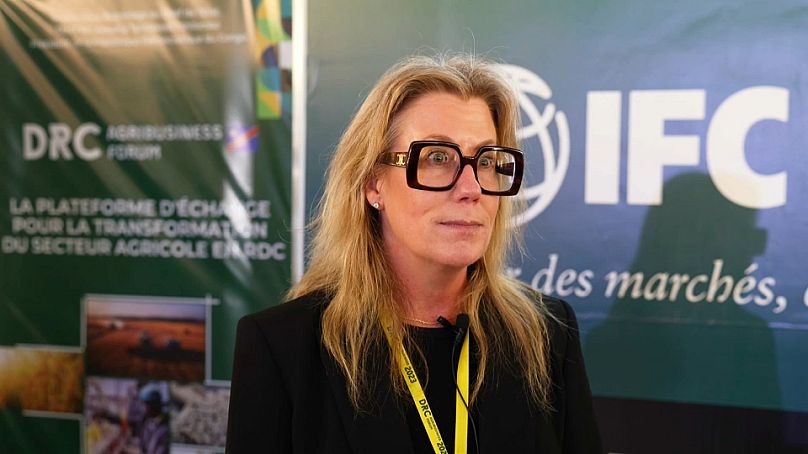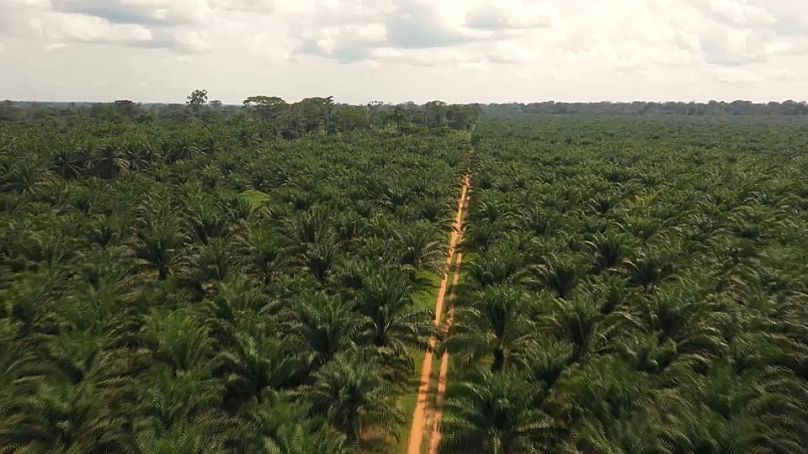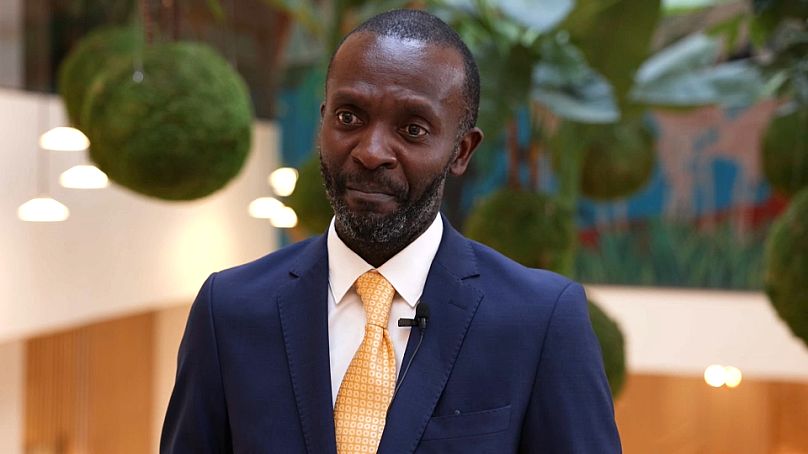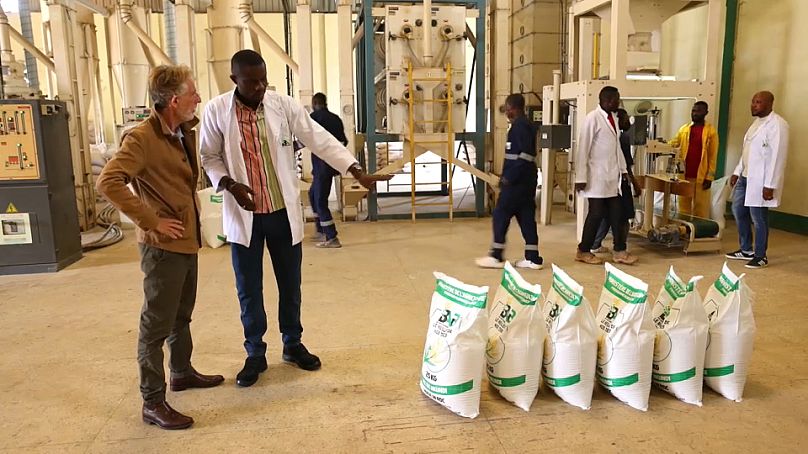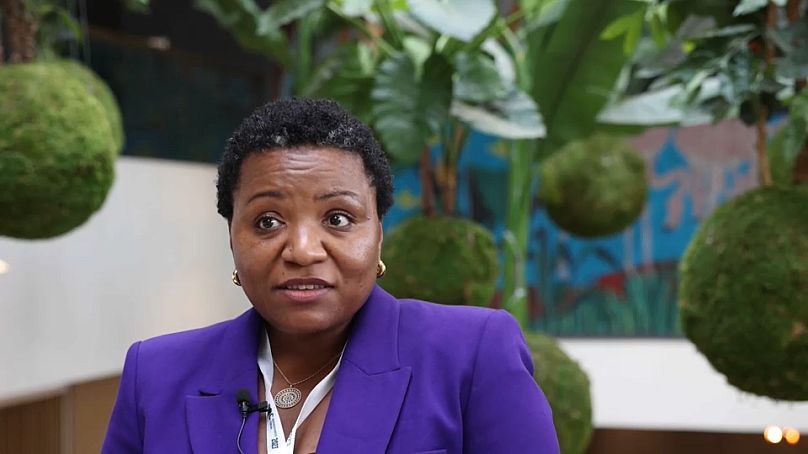At the AgriBusiness Forum in Kinshasa, government and economic players from the Democratic Republic of the Congo emphasised the urgent need to exploit the country's agricultural potential in order to meet the challenge of food insecurity.
With a territory four times the size of France, agricultural production potential capable of feeding a quarter of the world's population, climatic diversity, freshwater reserves and hydroelectric potential, it's clear that the Democratic Republic of the Congo has major assets.
 ADVERTISEMENT
ADVERTISEMENT
 ADVERTISEMENT
ADVERTISEMENT
But these assets pale into insignificance in the face of food insecurity. It affects 27 million people, and every year the country spends billions of dollars on food imports.
So how can all this be resolved? That was the question being discussed at the AgriBusiness Forum in Kinshasa.
'Eternal prospects': The importance of agriculture
Agricultural growth is imperative. It is more effective in reducing poverty than growth in other sectors. This forum has therefore created an ecosystem around agriculture, including finance, industry, energy and infrastructure.
The aim is to increase the number of initiatives to promote growth in the sector. The stakes are economic, social and environmental.
"We no longer have time to talk about potential. We urgently need to act," said Nicolas Kazadi, the Minister of Finance for the Democratic Republic of the Congo.
"Meeting the challenge of agriculture rests on three pillars. The first is infrastructure. The second is governance and the business environment, and the third is the question of the entrepreneurial culture of local people first, and then attracting foreigners. We need to do this because we have been relying for too long and too heavily on the mining sector, which will not last forever."
"As far as agriculture is concerned, our prospects are eternal. So now - more than ever - is the time to take advantage of this strong situation in the mining sector to build something else, to diversify our economy by relying on our most reliable, most sustainable asset, which is agriculture and agro-industry."
The government has launched a programme of reforms to promote the development of private investment in the country's main agricultural value chains. The ten-year strategy will boost the productivity of farmers and human capital, develop energy and transport infrastructure, and improve the governance framework: a virtuous circle to increase cooperation between national and international operators and economic bodies.
"We're working both with the public and the private sector," explained Mary Porter Peschka, the Regional Director for East Africa at the International Finance Corporation (IFC).
"We recently completed a number of deep dives, [and] studies on key agricultural sectors. And we're also working on the investment side, making loans, taking equity positions and agricultural companies in the country. These things together, as well as good policy from the government, are gonna be what moves things forward".
How can the DRC unlock its agricultural potential?
The country could increase its food production to feed its 100 million inhabitants and boost its exports.
The sector employs around 70% of the population and accounts for 20% of GDP. Despite this potential, the Democratic Republic of the Congo has low agricultural yields, with 51 million hectares of uncultivated land out of 80 million hectares of arable land.
"What we're doing is encouraging entrepreneurs in incubators to tell themselves that they need to know the law," Anthony Nkinzo Kamole, the Managing Director at the DRC's National Investment Promotion Agency (ANAPI) told Focus.
"They need to know how to draw up a business plan. They need to have bankable projects. And then they must be able to have what we call a kind of financial management of their project."
"Today, with 80 million hectares of arable land, we need to ensure that malnutrition can be genuinely reduced. So can we really afford to fail? I think we can no longer afford to fail."
This proactive policy has seen the emergence of six large-scale food-growing sites for local consumption, scattered throughout the country. One example is Bio Agro-Business, in the province of Kongo Central.
The company produces long-grain rice using an agro-industrial approach and offers training in rural areas.
"Our agricultural engineers come to help farmers improve their crop yields," said Bienvenu Bieka, the Manager at Bio Agro Business in Kimpese. "We give them seeds and then we make machinery available to them for their work. We buy their produce so that they can live well."
'We have to believe in our own potential'
These incubators develop local private enterprise through the emergence of young entrepreneurs based on plots of land around production sites. In a global context marked by ecological and security crises, the Democratic Republic of Congo is positioning agriculture as the linchpin of its economic development.
"We have to believe in our own potential. We have to really believe in it," stressed Gracia K. Kabanga of the Terra industrial farming complex.
"These companies are here. That means they have the ambition, they have the courage, they probably have the expertise to do what they're doing. They just need support. The most important thing is that we are given the opportunity, the framework, to develop fully."












